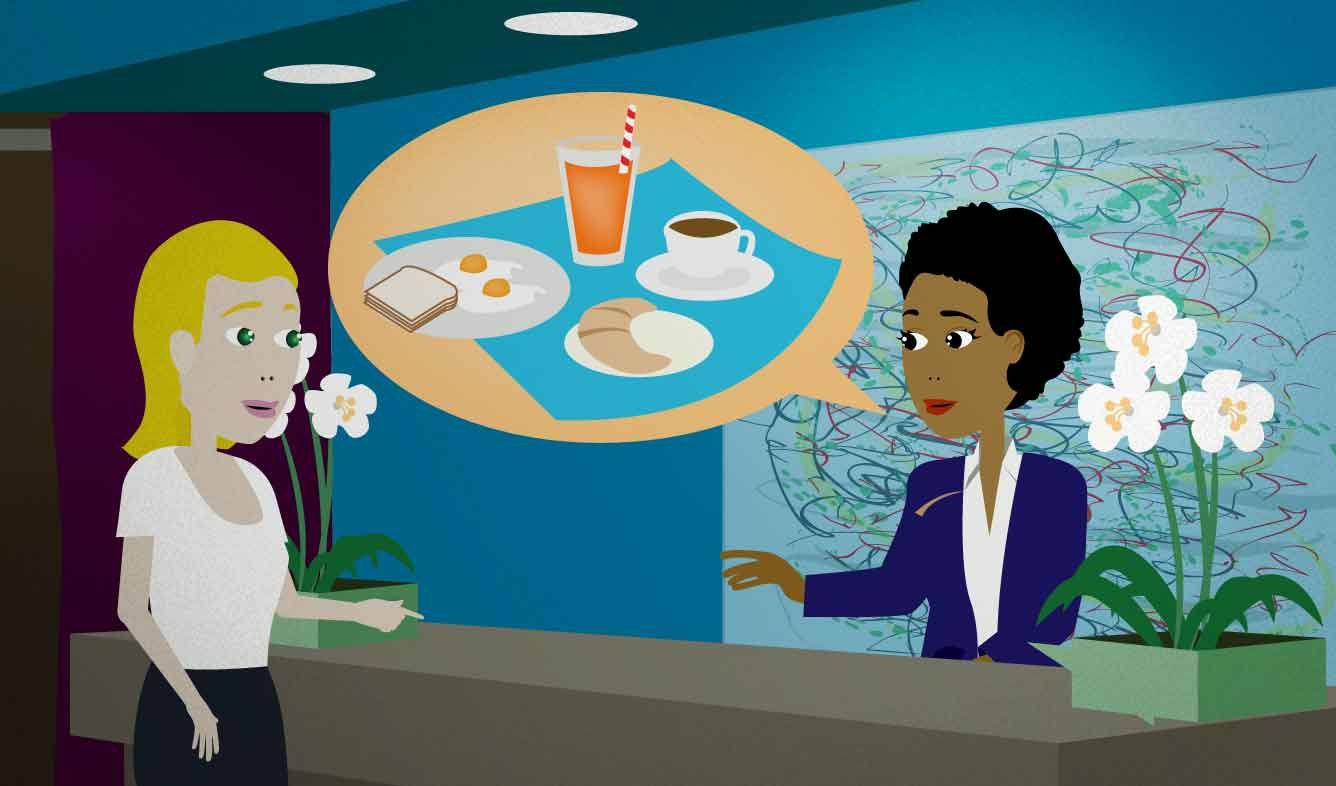“We have a complimentary breakfast buffet available from 7 to 10 a.m.”
You work at a hotel. A guest is checking in. You're telling him about some of the things that your hotel offers. You explain that he can eat breakfast for free.
We have a complimentary breakfast buffet available from 7 to 10 a.m.
Want Video and Sound? Follow us on YouTube

a complimentary (something)
"Complimentary" means "free", but it sounds a lot fancier and nicer. So hotels, restaurants, theaters, and stores use this word when they want to offer something free to their customers without sounding too cheap. Here are examples of "complimentary" things:
two complimentary tickets
a complimentary breakfast
complimentary champagne
complimentary parking
a buffet
A "buffet" is a way of serving food at a restaurant, hotel, event, etc. All of the food is laid out on tables or in special serving carts. Customers or guests walk up to the food and take whatever they want.
When people think of a "buffet", they usually think of an "all you can eat buffet". At this kind of restarant, customers pay one price but can eat as much food as they want.
Some common types of buffets are:
- a breakfast buffet
- a Chinese buffet
- a pizza buffet
- an Indian buffet
There are some other types of foods that are served in the same way, but aren't called "buffets":
- a salad bar
- a pasta bar
(something) is available (at a certain time / in a certain place)
When something is "available", it means that someone has it, and that people are allowed to use it. For example, an employee at a gym might say:
Free yoga classes are available on Saturday mornings.
You can also say that "there is ___ available":
There's coffee and donuts available in the lobby.
And "___ has ___ available":
We'll have some more available on Wednesday.
I don't know if anyone's going to want to drink, but it's nice to have something available in case they do.
(some time) a.m.
To talk about a time in the morning, you can use the abbreviation "a.m.":
10:30 a.m.
It's correct to put periods after the 'a' and 'm', but recently more and more people write it like this:
10:30am
The abbreviation for a time after noon is "p.m."
When you're speaking out loud instead of writing, using "a.m." and "p.m." makes the time sound quite exact. A less formal way to speak is to drop the abbreviation when it's obvious:
I wake up at about nine.
Or use "in the morning", "in the afternoon", etc.
I slept until three in the afternoon.
